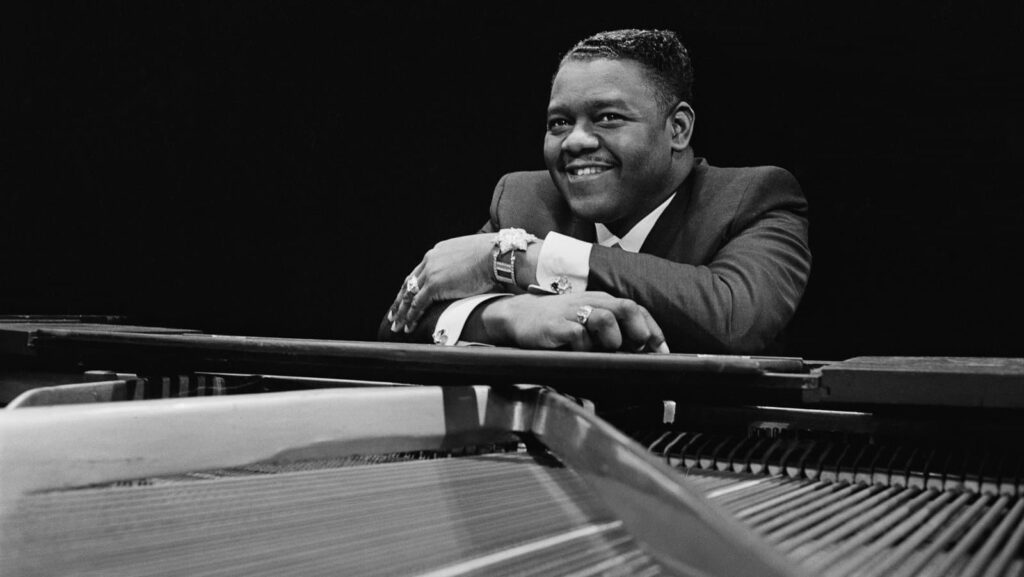
The Whimsical Anthem of a Tiny Pest and the Dawn of Rock ‘n’ Roll
Ah, the 1950s. What a time to be alive, when the air was electric with a sound that felt both ancient and brand-new. Amidst the birth pangs of rock ‘n’ roll, a sound that owed so much to the rhythmic pulse of New Orleans, stood one of its kindest and most consistent architects, the inimitable Fats Domino. His 1956 single, “Bo Weevil,” wasn’t just a catchy tune; it was a rhythmic nod to the blues history of the American South, wrapped up in the joyous, rolling boogie-woogie piano style that was uniquely his.
Released in January 1956 on Imperial Records, “Bo Weevil” became a solid, respectable hit for the gentle giant from the Ninth Ward. It cruised to Number 35 on the Billboard Hot 100 chart and achieved even greater recognition on the rhythm and blues side, peaking at Number 5 on the R&B chart in February of the same year. This performance cemented Fats Domino’s reputation as one of the most reliable hit-makers bridging the R&B world into the burgeoning pop market. It was a time when the lines between these genres were blurring at a thrilling pace, and Fats was driving the change, one effortless groove at a time. The song also found a home on his iconic 1956 album, Rock and Rollin’ with Fats Domino, a foundational text for anyone looking to understand the era.
The song’s story and meaning are steeped in a deep American folk tradition. The “bo weevil”—more accurately, the boll weevil (Anthonomus grandis)—is a tiny beetle that decimated cotton crops across the South starting in the late 19th century. Yet, as so often happens in the hands of musicians, a creature of economic despair was transformed into a figure of musical folklore. Long before Fats Domino and co-writer Dave Bartholomew put their New Orleans stamp on it, the boll weevil had been the subject of mournful blues songs and spirituals by pioneers like Ma Rainey and Charley Patton. These older songs spoke of the weevil as a metaphor for trouble, hardship, and the wandering life.
Fats Domino and Bartholomew took this somber folk theme and flipped it into a playful, danceable romp. The song’s meaning, therefore, is an incredible testament to the resilience and celebratory nature of New Orleans music. It’s a tale of a tiny, stubborn pest that just keeps coming back, sung with such joyous abandon that it turns hardship into humor. The insistent, rocking piano riff and Fats‘s warm, distinctive vocals—singing a narrative about the weevil moving into a new home—make the subject light and utterly infectious. It captures the essence of early rock: taking the weighty narratives of the blues and spirituals and making them move, making them rock.
Listening to “Bo Weevil” now, it’s impossible not to be transported back to that simpler, yet revolutionary, era. You can practically see the jukeboxes glowing in the corner of a diner, hear the rustle of a new 45 spinning for the first time. The song is not a deep existential crisis set to music, but a masterclass in rhythm, a perfect example of how Fats Domino could imbue any subject—even an agricultural pest—with irresistible charm and musical gravity. It’s a nostalgic echo of a time when the piano, played with a heavy left hand and a dancing right, was the true king of the rock and roll sound.